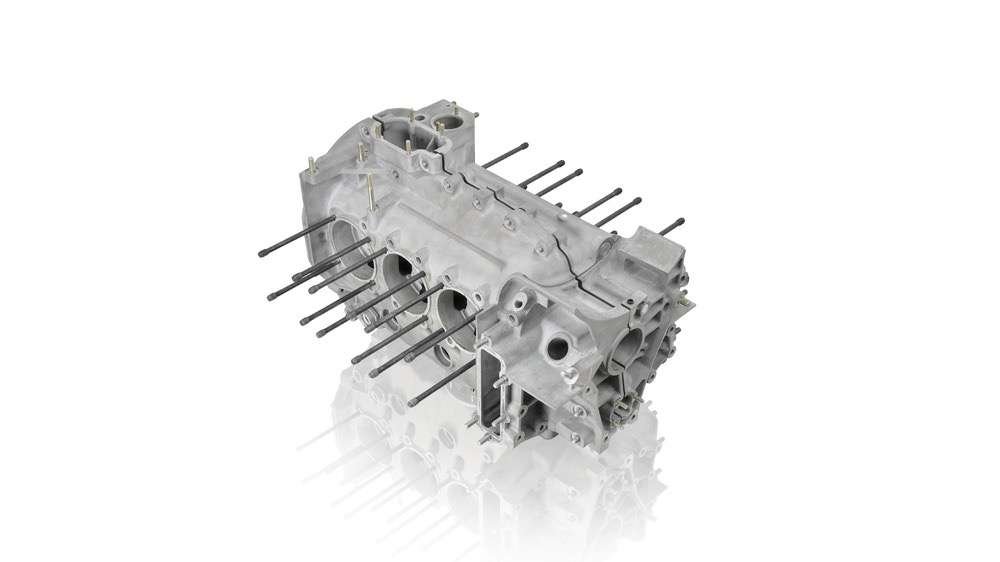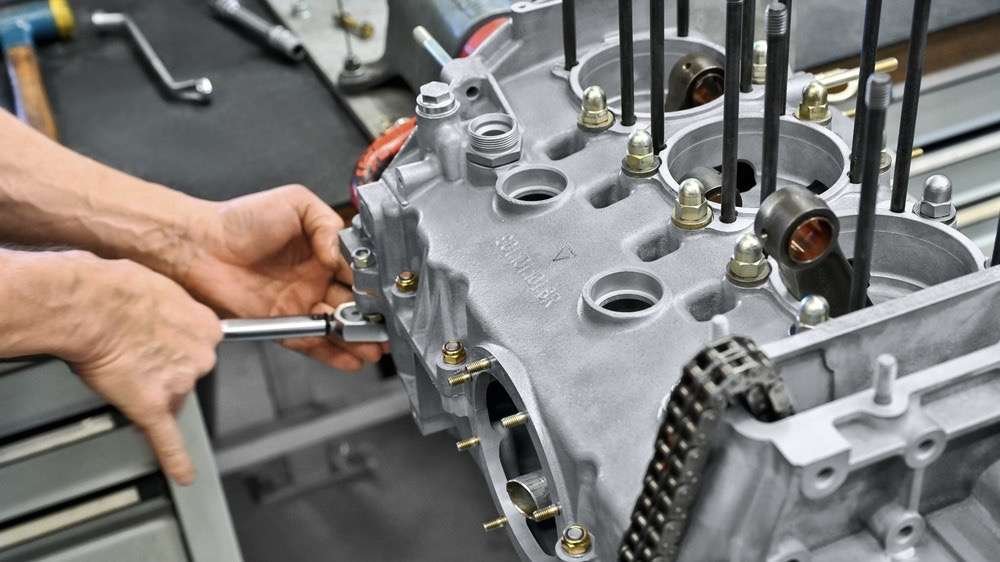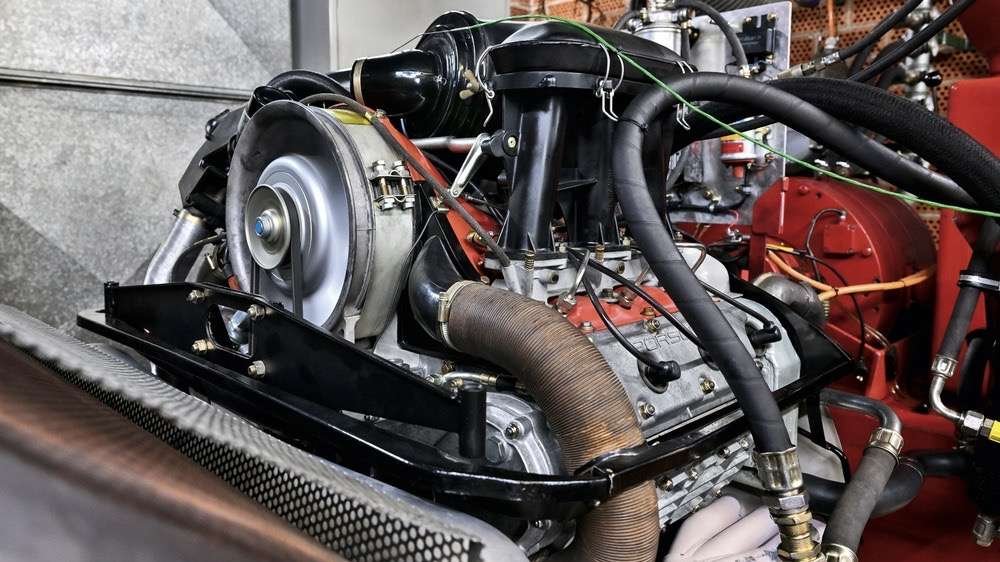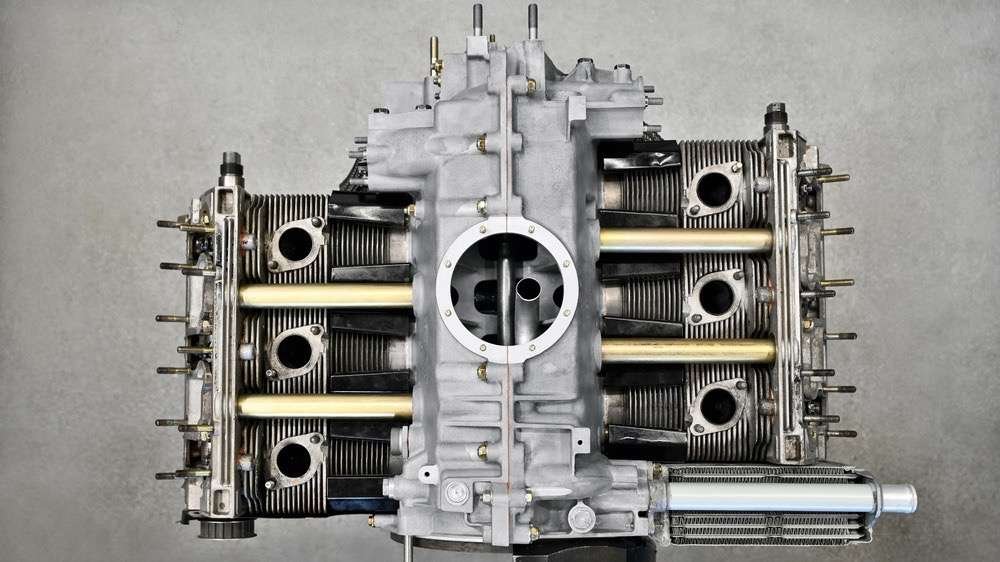
While many vehicle manufacturers are increasingly cutting back on the supply of spare parts for their classic cars, Porsche is taking a completely different approach. Porsche Classic now offers new magnesium crankcases for Porsche 911 F and G models. For vehicles with displacements from 2.0 to 2.7 liters, i.e. also the 911 Carrera RS 2.7, a crankcase can now be ordered as a new part from any Porsche Center.
After only being able to repair engine housings or replace them with used parts in the past, Porsche is now making it possible to rebuild historic engines again. “This reissue closes another gap in our range of spare parts, making it possible to build completely new engines for most classic 911 models”, Ulrike Lutz summarized. The head of Porsche Classic also emphasized that demand for original engine components is very high. That’s why the company is also working on further replicas of crankcases.

New crankcases for the air-cooled Porsche 911 of the 964 and 993 generations have already been available for two years, but in this case they are made of aluminum. However, since all the old engine drawings with production-relevant data were no longer fully legible, Porsche had to get creative. The data set required for machining was obtained during the remanufacturing of engines for the Porsche 962 Group C sports car. For the production of new crankcases, the most mature, i.e. last, development status of the series component at the time is also assumed.
In order to guarantee customers the highest possible level of reliability, Porsche tested the newly manufactured crankcases using the same methods and procedures even recent engines go through. This means that a complete engine was first built on the basis of the new crankcases. Here, Porsche went straight into the thick end of things. As a sample they chose a 911 Carrera RS 2.7 engine.


This engine – equipped with numerous measuring sensors – underwent an extensive test program. The test bench runs were typical Porsche. They included endurance runs with precisely specified load conditions and speeds. Between the runs, the quality assurance experts took oil samples. These were analyzed for suspended particles and foreign substances. After completion of all the test bench runs, the technicians dismantled the engine down to the last screw. Only after all the individual parts and, of course, the crankcase had been precisely inspected did the engine receive the quality assurance seal of approval.
Porsche’s new crankcases for 911 F and G models secure the stock of classics from Zuffenhausen. They supplement the now 80,000-part range of new parts that Porsche Classic offers for spare parts supply. And every year there are around 200 more parts.

But Porsche Classic does not limit itself to the replacement of components. More than 1,000 operating manuals, repair guides, and much more can also be ordered directly from Porsche Classic. The range is supplemented by technical innovations in classic guise, such as the Porsche Classic Infotainment systems PCCM and PCCM Plus.
Elferspot magazine